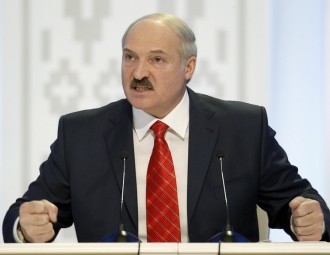Lukashenka keeps sinking the country further down

Belarus President sees no need to change the government’s economic policy.
Aliaksandr Lukashenka stated that on Tuesday in Minsk, speaking at a government meeting on the current economic developments.
The Belarusian leader noted that the government had raised a number of issues that required a decision at the level of the head of state, and that he had thought over the government’s proposals «for days and even for weeks,» BelTA informs.
«I do not consider it possible and necessary to change the policy – if anyone suggests this – under the current circumstances,» Mr. Lukashenka said. «This is the policy that helped us acquire independence and create our state. And today I cannot agree to breaking anything, putting excessive pressure on people, which would yield no result. I am unalterably opposed to this,” – the head of state said.
“I would like you to adhere to the policy that we promised to our people during the election campaign. We should not lie to people. Otherwise, we would carry out so-called reforms for ourselves. They would be rejected by the people. This would mess up the minds of people and destabilize the situation, and then, if we lost control and, perhaps, the face of the government and money, we would have to do even more than we have to do today for, for instance, repaying the external debt,» - Lukashenka said.
The economic policy that has been chosen by the state is a criterion for making decisions today, he stressed.
-
03.01
-
07.10
-
22.09
-
17.08
-
12.08
-
30.09








































